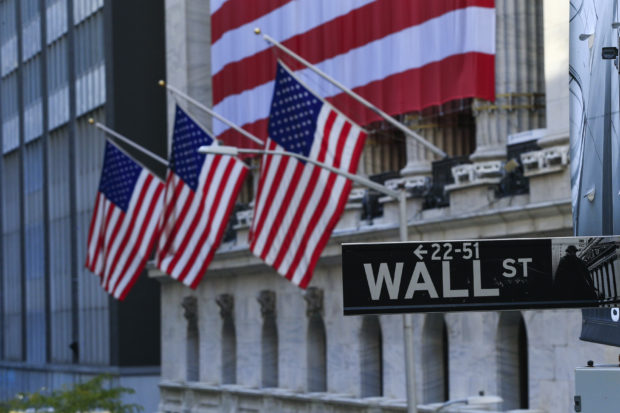Wall Street closes lower, battered by price concerns

(Photo by Kena Betancur / AFP)
NEW YORK – Wall Street plunged into the red on Thursday, with all three major stock indices closing lower after investors were disappointed by Federal Reserve Chair Jerome Powell’s response to inflation fears.
The tech-rich Nasdaq Composite Index was the biggest loser, falling 2.1 percent to end at 12,723.47, off the lowest point of the session.
The benchmark Dow Jones Industrial Average shed 1.1 percent to close at 30,924.14, while the broad-based S&P 500 dropped 1.3 percent to 3,768.47.
Shares were choppy but mostly higher all day, but headed south shortly after Powell’s speech, despite the central bank chair saying price increases are not an immediate concern and again pledging to keep the benchmark interest rate low for the foreseeable future.
Apparently markets wanted more, and the yield on 10-year US Treasury notes spiked to 1.55 percent, the highest this week and near the peak of the past year — a red flag for inflation pressures — which ignited a stock selloff.
Article continues after this advertisementEquities have been depressed in recent weeks as signs of economic recovery amid accelerating vaccine rollouts have traders worried about what will happen to prices and what companies and sectors are most vulnerable to rising borrowing costs.
Article continues after this advertisementThe Nasdaq is close to correction territory, nearly 10 percent below its last peak on February 12.
Powell once again downplayed inflation worries, stressing the “difference between a one-time surge in prices and ongoing inflation.”
He pledged that the Fed will not act to raise interest rates until the economy has returned to maximum employment — which will not happen this year — and inflation is both above the bank’s 2.0 percent goal and on track to remain there “for some time.”
“We’re not intending to raise interest rates until we see those conditions fulfilled,” Powell said.
But Karl Haeling of LBBW said markets were hoping for “something stronger” including some operation to help contain the bond sell off.
“We don’t know right now if it’s just a knee jerk reaction of disappointment or if this is really the starts of a new phase higher in bond yields,” he told AFP.